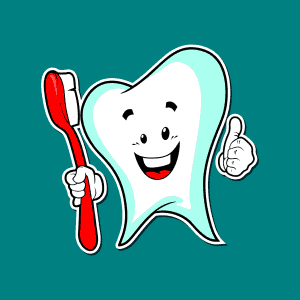Key Takeaways
- Proper oral hygiene is essential for maintaining good overall health.
- Regular visits to the dentist for check-ups and cleanings can help avoid major dental problems.
- A balanced diet significantly impacts dental health.
- Avoiding harmful habits like smoking improves oral hygiene.
- Proper techniques for brushing and flossing are essential.
The Importance of Oral Hygiene
Taking care of your mouth involves more than simply brushing your teeth. Proper oral care can prevent dental issues like cavities and gum disease. An important part of keeping your mouth healthy is regularly cleaning your tongue and the roof of your mouth because these spots can contain bacteria that cause bad breath and dental problems. Maintaining healthy habits ensures a bright smile and overall well-being. Going to Dental Excellence of Parkesburg for thorough care can have a big impact on your dental health progress. Dental professionals can catch potential problems early and provide expert advice on maintaining your teeth and gums. For instance, they can offer insights on the most effective toothbrushes and toothpaste and tips on brushing and flossing correctly. This is something that at-home routines often miss, but professional guidance can cover it comprehensively.
Regular Dental Check-Ups
Visiting the dentist twice a year helps catch problems early. Regular visits to the dentist, such as Dental Excellence of Parkesburg, are essential to keep your oral health in check. Cleanings remove tartar and plaque that can’t be eliminated by brushing alone. During these visits, the dentist screens for oral cancer, checks for cavities, and ensures your gums are healthy. Routine exams ensure potential issues are addressed quickly, preventing the need for more extensive and expensive treatments later on.
Moreover, regular check-ups allow you to update your dental care routine based on professional guidance. For example, your dentist may identify areas in your mouth that you miss during brushing or flossing and offer tips to reach these spots more effectively. They might also recommend specific treatments like fluoride varnish if you are at high risk for cavities.
Diet and Dental Health
Your diet greatly impacts your oral health. Foods high in calcium and vitamins promote the health of your teeth and gums. Leafy greens, nuts, and dairy products are excellent for maintaining strong teeth. Moreover, foods high in fiber such as apples and carrots can assist in naturally cleaning your teeth by increasing saliva production, counteracting acids, and removing food particles.

On the other hand, excessive consumption of sweet foods and beverages can result in cavities and should be enjoyed in moderation. Sodas and candies are particularly harmful, containing acids that erode enamel. Replacing these with healthier alternatives such as water and fresh fruits can have a significant impact on your oral health. Remember, what you eat affects your general health and oral hygiene significantly.
Avoiding Harmful Habits
Smoking and drinking too much alcohol can harm your teeth and gums. Smoking stains your teeth and affects saliva flow, making your mouth more susceptible to cavities and gum disease. Stopping smoking greatly decreases the chance of developing gum disease and oral cancer. In the same way, too much alcohol can cause dehydration and a lack of saliva, creating a favorable environment for bacteria to grow.
Drinking moderately helps maintain stronger teeth. AvoidingIt’s habits like biting your nails, chewing ice, or using your teeth as tools can cause cracks, chips, or even breaks. It’s essential to be aware of these harmful habits and make conscious choices to protect your oral health.
Brushing and Flossing Techniques
- To prevent cavities, brush your teeth two times a day with fluoride toothpaste to remove plaque.
- Tooth brushing cannot clean between teeth and below the gum line, so it is important to floss daily to remove plaque in those areas.
- In order to make sure cleaning is efficient, change toothbrushes every 3-4 months or sooner if bristles are worn out.
- Utilize mouthwash to eliminate bacteria and improve the smell of your breath. Mouthwash can reach areas where brushing and flossing can’t, providing an extra layer of protection.
Adhering to these customs can assist in keeping your mouth clean and healthy, thus minimizing the chances of dental issues. Proper techniques are crucial for effectiveness. For instance, brushing should be done with gentle circular motions for at least two minutes to ensure thorough cleaning without damaging the gum line.
Impact of Stress on Oral Health
Stress can negatively impact oral health, sometimes causing issues like mouth sores or teeth grinding. Bruxism, or teeth grinding, often happens unconsciously during sleep and can wear down your teeth. Discovering methods to handle stress can enhance the overall condition of your teeth.
Meditation, exercise, and adequate sleep improve stress management, indirectly benefiting your teeth and gums. Additionally, being mindful of your mental health and seeking professional help when needed can profoundly impact maintaining overall wellness, including your oral health.
Choosing the Right Dental Products
With so many products available, choosing the right ones can be overwhelming. Opt for those with the ADA Seal of Approval. This seal indicates that the product has been tested for safety and efficacy. Fluoride-containing toothpaste can reduce tooth decay by increasing the tooth’s defense against acid erosion caused by bacteria and sugar in the mouth.
Soft-bristled toothbrushes are generally recommended as they effectively clean your teeth without causing abrasion to your gums. Investing in electric toothbrushes can also be beneficial as they provide a more comprehensive cleaning. Investing in quality dental products ensures you’re giving your teeth the best possible care. Regularly checking for new advancements and updates in dental care can also help you stay ahead in maintaining optimal oral health.
